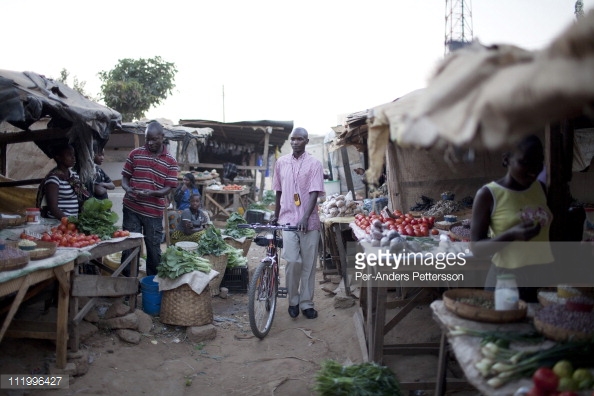Food industry an essential partner in improved nutrition
About the author: William Chilufya is a civil society advocate for good nutrition and country coordinator for Zambia Civil Society Scaling Up Nutrition Alliance (CSO-SUN). He is also a member of the SUN Movement Executive Committee. Things are now changing in Zambia around Nutrition, I would confidently…
 Things are now changing in Zambia around Nutrition, I would confidently say that by working t o g e t h e r – t h e Government, Civil Society, Private Sector and donors have created a foundation upon which more progress can be made in improving nutrition in Zambia.
Things are now changing in Zambia around Nutrition, I would confidently say that by working t o g e t h e r – t h e Government, Civil Society, Private Sector and donors have created a foundation upon which more progress can be made in improving nutrition in Zambia.
Last week on the 11th November 2015, the Scaling Up Nutrition (SUN) Business in Zambia celebrated the first anniversary and I was privileged to offer closing remarks in which I emphasised stakeholders including the general public to recognise the role that the private sector plays in improving nutrition.
What I took from the discussions is that no doubt, all levels of the Food Industry are essential partners to help reach the goal of an improved nutrition in Zambia and the whole world. This takes me onto my next thought that we should be properly involved as a whole-of-society by using our efforts towards reaching such a goal. Of course, proper “rules of engagement” could usefully be defined for such an involvement.
The main attraction of the anniversary celebrations was an opportunity to listen to Ms Leonie Joubert, a South African based journalist who recently authored a book entitled ‘The Hungry Season: Feeding Southern Africa’s Cities’. In my own view, she provided a very thought-provoking overview of the potential role of the private sector within the nutrition space.
She defined food systems and security through the lens of individuals, the companies, different agents and institutions showing how they represent how they are responsible for food going from the farm, through harvest, collection, t ranspor tat ion, proces s ing, manufacturing, and packaging into the retail shops to the consumer. Though Leonie was speaking to mostly private sector businesses, she highlighted the importance of each of the various players in the food system who equally have responsibility to address the challenges.
In Zambia, one clear gap is that large retail supermarket chains need to take keen interest in nutrition and how they can be part of the solution. Both in our country as well as other developing countries in the region, as retail chains are expanding more and more deeply into local markets. Within low-income areas, retailers are often thought to improve people’s quality of life through greater access to more diverse products at a lower price, what frequently happens is that not only are local small scale businesses put out of business, but people change their dietary habits to consuming less nutritious, processed foods, that lead to poorer health both in the short and long term. When I look at mother Zambia I think of our young urban mothers feeding their children maheu – high in sugar and low in nutrition.
As such, I see it as the obligation of retailers, who claim to work in a socially responsible manner, to take up the call of nutrition. What does this mean? Expanding the range of nutritious products they stock (not just weight loss products), improving the placement of these products on their shelves, and supporting companies producing these products to promote them and increase consumer awareness surrounding nutritious products.
Retailers, consider this your call to action: make commitments to nutrition, don’t support consumers to make food decisions that make them compromise their nutrition status, but instead help to contribute to them living a healthy and productive life. This is not apportionment of blame neither is it the failure of individual government or companies but of the complete food system. If anything, there is more than ample opportunity for every business to constructively engage through the SUN Business network on how business can improve nutrition.
I firmly believe that we are within reach to begin addressing such problem firstly because we have realised there are challenges in the food system and secondly our attention on nutrition as a country is growing. We however got a lot to do. For instance, if the private sector is to play a new and positive role in addressing under-nutrition, stakeholders including the government, civil society, donors, academia and the general public must be willing to engage the private sector and highlight what needs to be done to improve nutrition in the country.
In 2008, the first Lancet series concluded that the approach to tackling nutrition crises was fractured. Since then different countries especially those part of the Scaling Up Nutrition Movement have spent much energy on improve coordination across sectors and stakeholders through the creation of multi-stakeholder platforms. This is very significant because If we have a disjointed private sector on nutrition, we are in danger of losing much of the progress in addressing malnutrition. This is where the role of the SUN business becomes critical.
This article was originally posted on the Zambia Daily Mail